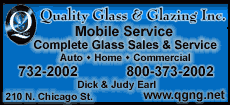|
 The Cambridge, Mass.-based maker of drugs to treat conditions including multiple sclerosis and arthritis said its board had authorized management to explore a possible sale, although it cautioned that there was no assurance a deal would occur. The Cambridge, Mass.-based maker of drugs to treat conditions including multiple sclerosis and arthritis said its board had authorized management to explore a possible sale, although it cautioned that there was no assurance a deal would occur.
Shares rose $2.31, or 3.4 percent, to close at $69.43 -- just shy of the stock's record close of $69.81 set in December 2000. After Friday's close, shares gained a further $11.92 to $81.35. Friday's closing price exceeded the 52-week high of $69.
The company's market capital is just shy of $20 billion.
The company issued a statement saying that its current business strategy "is working and generating strong operating and financial performance. ... Nevertheless, to determine whether potential strategic interest on the part of major pharmaceutical companies might result in superior value in the current environment, the board has authorized management to explore interest in a transaction with Biogen Idec."

Biogen Idec said it has received "expressions of interest, including one from investor Carl Icahn."
The company said it would not disclose further information until its evaluation was complete.
In August, federal antitrust regulators cleared Icahn to buy a stake in Biogen Idec. Earlier in the month, Icahn reported purchasing 2.7 million shares of the company as of June 30.
Biogen Idec retained Goldman Sachs & Co. and Merrill Lynch & Co. to assist in the review of a possible sale.
[to top of second column] |
 The company, founded in 1978, is due to report third-quarter earnings Oct. 23. In July, the company said it swung to a second-quarter profit on strong sales of two key drugs, the MS drug Avonex and Rituxan, approved for non-Hodgkin's lymphoma and rheumatoid arthritis.
The results boosted the stock to its highest level since the company withdrew a newer MS drug called Tysabri in February 2005 because of safety concerns.
Tysabri had been seen as a potential blockbuster for Biogen Idec and Irish partner Elan Corp. PLC before it was withdrawn after two clinical trial patients died of a rare brain disorder known as PML. U.S. and European authorities approved Tysabri's reintroduction in June 2006, but with restrictions to monitor patients for symptoms of the brain disease.
On Thursday, Biogen Idec and Elan said that 17,000 patients had taken Tysabri as of Sept. 30, and no new cases of PML have been found.
[Associated Press; by Mark Jewell]
Copyright 2007 The Associated Press. All rights reserved. This
material may not be published, broadcast, rewritten or
redistributed.
 |